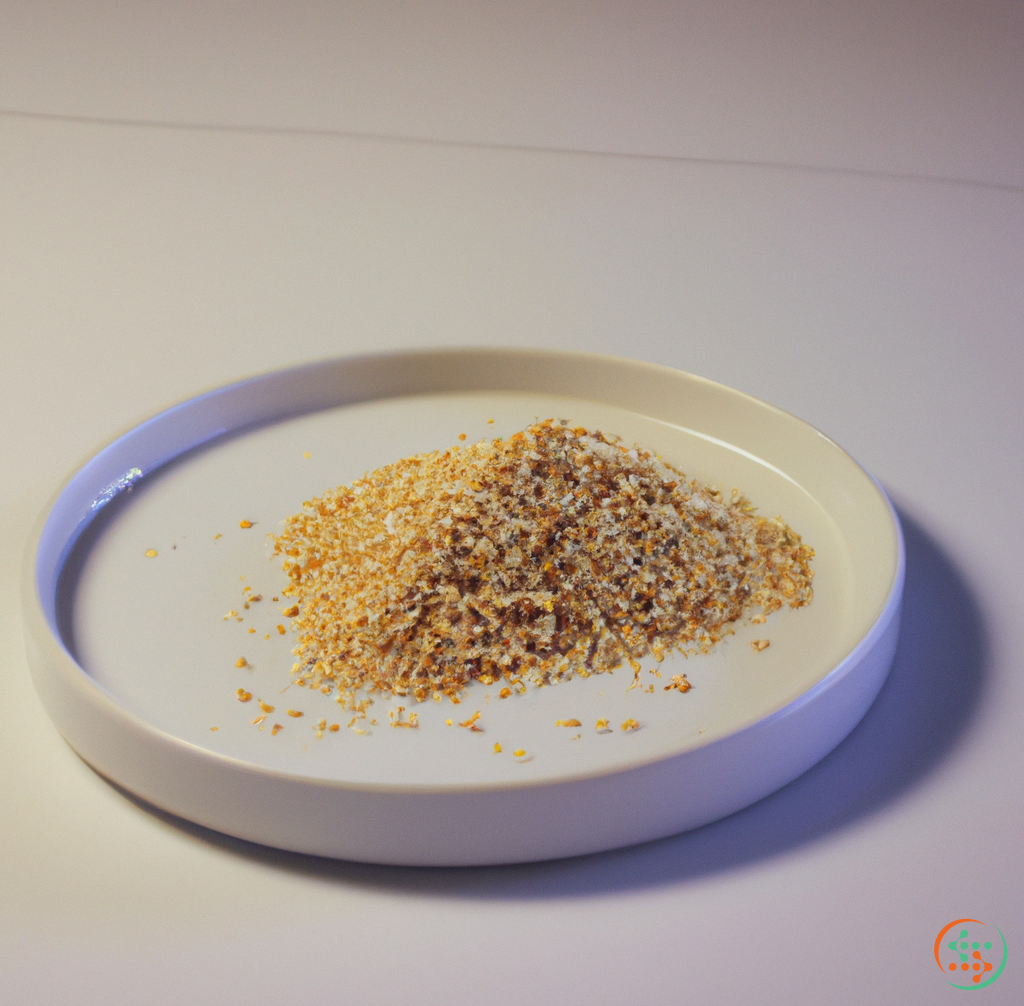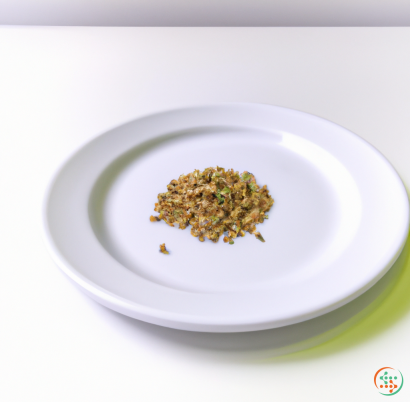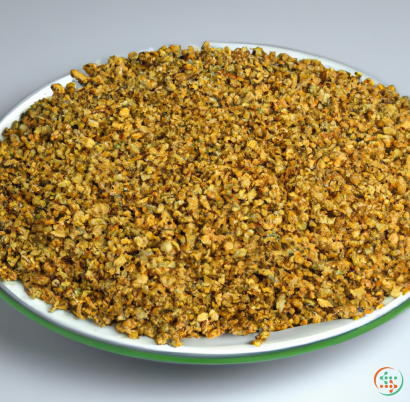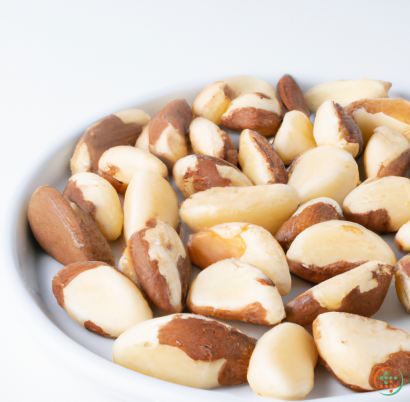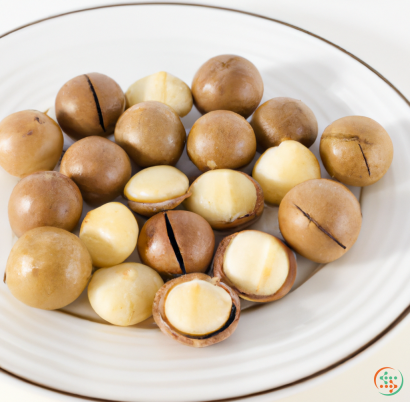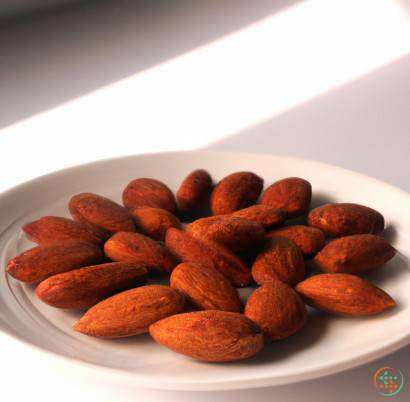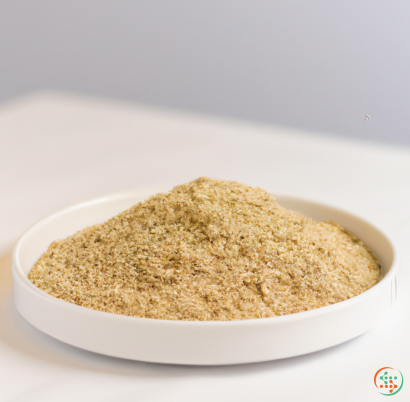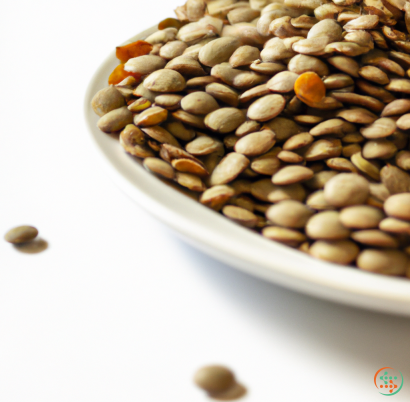Sesame Seeds
Sesame seeds are small oval-shaped, flat and slightly crunchy seeds that are often used in Asian, African and Middle Eastern cuisines. Although sesame is most commonly associated with its use in tahini — a popular condiment made from pureed sesame seeds — its rich nutty flavor is also enjoyed in sweets, sauces, salads and baked goods.
Though widely available in supermarkets, it's worth noting that the most flavorful sesame is freshly ground from whole sesame seeds, as opposed to a pre-ground version. The sesame seed can be used in its whole form as a garnish, sprinkled over dishes, or as a coating for fish and meat. It can also be pressed to make sesame oil, or ground into a paste, known as tahini, which is commonly used in falafel, hummus, and baba ganoush.
Sesame seeds have a rich and nutty flavor, with a buttery texture when eaten raw. They have a mildly sweet taste when lightly toasted and are often used to enhance the flavor of Asian, African, and Middle Eastern dishes. Sesame oil, which is extracted from the seeds, is very flavorful and fragrant. When heated, the oil releases a nutty and slightly sweet aroma.
In terms of nutrition, sesame seeds contain a good amount of healthy fats, protein, dietary fiber, vitamins, and minerals. Notably, they are an excellent source of calcium and iron. As are many plant sources of iron, the iron in sesame seeds is not as well absorbed by the body as iron from animal sources, such as red meat. The calcium content of sesame seeds is greater than that found in cow’s milk and most other dairy products. Like other seeds, nuts, and legumes, sesame seeds are a good source of magnesium, which helps to regulate blood sugar levels and promote healthy muscles and nerves.
Sesame seeds also contain two phytosterols, which are plant compounds that are similar to cholesterol in structure. Phytosterols may help to reduce LDL (or “bad”) cholesterol levels in the blood.
Since sesame is high in fat, it can be vulnerable to going rancid if not properly stored. Therefore, it's always best to buy sesame in its whole form, as opposed to its pre-ground or pre-pressed forms, as the whole seeds have a longer shelf life. It's also a good idea to buy non-irradiated sesame, as irradiation is a process used to prolong shelf life but can reduce the nutritional quality of a variety of foods.
To store sesame, transfer it to an airtight container and store it in a cool, dry place, like the pantry. It is also possible to store them in the refrigerator or freezer, as long as they are put in an airtight container. Sesame that has been ground or pressed into oil should be stored in the fridge to maximize its shelf life and prevent it from developing an off flavor.
Due to its versatility and health benefits, sesame seeds are an excellent addition to a wide variety of dishes. For instance, the seeds can be lightly toasted to bring out their nutty flavor. They can also be blended into sauces, tossed into salads, baked into cookies and muffins, and used to make hummus and falafel.
Overall, sesame seeds offer a good balance of flavor, nutrition and versatility — making them a wonderful ingredient to keep on hand. Whether you’re interested in incorporating sesame into your dishes, making a batch of homemade tahini or simply wanting to sprinkle sesame on top of your meals, these tasty and nutritious seeds will add flavor and texture to any recipe.
Sesame Seeds on Your Dinner Plate – How They Get There
Sesame seeds are a well-known culinary staple found in a variety of cuisines across the world as an essential ingredient in sauces and as a topping on breads, salads, and other dishes. But have you ever wondered how these tiny, crunchy seeds make it to your dinner plate? It’s a fascinating process that involves a lot of steps and several different players. In this blog post, we’ll explore the journey sesame seeds take from the fields where they are grown to their final destination on your dinner plate.
From Field to Store: The Step-By-Step Sesame Seed Journey
The sesame seed process begins in the field where dedicated farmers cultivate the plant. The sesame plant is a flowering plant in the family Pedaliaceae with origins in southern Africa, but is now cultivated in tropical regions around the world. The flowers of the sesame plant produce small, reddish-brown pods, and as the pods mature, they become white and brittle. Inside each pod lies the small and round sesame seeds that are used in cooking.
Once the seed is harvested, it moves to the next stage of production, which is usually the cleaning and processing of the seed. During this stage, machines separate the seeds from the pods, then a combine removes any stems, dirt, and debris using a sophisticated cleaning system. Next, the sesame seeds are subject to a series of quality control checks to ensure they meet the required standards.
After the seed has been sufficiently cleaned and processed, it is then packaged. Packaging materials vary depending on the desired final use of the seed and may include plastic bags, cardboard boxes, or even bulk containers. During packaging, the seed is typically weighed, labeled, and sealed so it can be transported from the farm to the store.
Once the sesame seed package has left the farm, it is ready for delivery to stores, restaurants, and culinary businesses. In most cases, farmers will use third-party companies to transport the seed packages to their destination. This involves loading packages onto trucks and trains and delivering it to their final destination. The transportation process is subject to the same stringent quality control measures employed during the initial stages of production, helping to ensure freshness and quality.
When the sesame seed packages arrive at the store, they are stocked and coordinated with other ingredients so they can be easily accessed by customers. Smaller packages are sold in supermarkets and specialty food stores, while larger packages are sold in bulk to restaurants and other culinary businesses. Customers can also purchase sesame seed products online, such as in the form of sesame oil or tahini (sesame seed paste).
Once a customer has purchased sesame seeds, it is then up to them to prepare the seeds for their dishes. This may involve toasting, grinding, and/or blending the seeds to impart more flavor and nutrition into meals. Toasting sesame seeds is especially important as it brings out a nutty flavor. Popular recipes that use toasted sesame seeds often require the seeds to be cooked until golden but not burned.
Finally, the sesame seeds are ready to be eaten. Cooks can use the seeds to add flavor and texture to soups, salads, and stir-fries, while they can also be eaten plain as a nutritious snack.
Conclusion
The journey of sesame seeds from the fields to the dinner plate is an intriguing process that involves a variety of steps, each of which has its own importance. From farm to store, careful attention must be paid to ensure that quality standards are met, and as a customer, you can take comfort in knowing that the sesame seeds you purchase have gone through a rigorous process to ensure both freshness and flavor. Whether you’re topping a salad with fresh sesame seeds or adding a drizzle of sesame oil to your favorite stir-fry, you can feel confident that the seeds in your dish have had an interesting journey from field to plate.
| Vitamin A | 0.003 mg | |
| Beta-Carotene | 0.04 mg | |
| Vitamin E | 0.00168 grams | |
| Vitamin B1 | 0.7 mg | |
| Vitamin B2 | 0.09 mg | |
| Vitamin B3 | 0.0058 grams | |
| Vitamin B4 | 0.0256 grams | |
| Vitamin B5 | 0.29 mg | |
| Vitamin B6 | 0.4 mg | |
| Vitamin B9 | 0.115 mg |
| Calcium | 0.06 grams |
Daily Value 1.3 g
|
| Iron | 0.00636 grams |
Daily Value 0.018 g
|
| Magnesium | 0.345 grams |
Daily Value 0.4 g
|
| Phosphorus | 0.667 grams |
Daily Value 1.25 g
|
| Potassium | 0.37 grams |
Daily Value 4.7 g
|
| Sodium | 0.047 grams |
Daily Value 2.3 g
|
| Zinc | 0.00673 grams |
Daily Value 0.011 g
|
| Copper | 0.0014 grams |
Daily Value 0.9 mg
|
| Manganese | 0.00144 grams |
Daily Value 0.0023 g
|
| Selenium | 0.0344 mg |
Daily Value 0.055 mg
|
| Tryptophan | 0.33 grams | |
| Threonine | 0.73 grams | |
| Isoleucine | 0.75 grams | |
| Leucine | 1.5 grams | |
| Lysine | 0.65 grams | |
| Methionine | 0.88 grams | |
| Cystine | 0.44 grams | |
| Phenylalanine | 0.94 grams | |
| Tyrosine | 0.79 grams | |
| Valine | 0.98 grams | |
| Arginine | 3.25 grams | |
| Histidine | 0.55 grams | |
| Alanine | 0.99 grams | |
| Aspartic Acid | 2.07 grams | |
| Glutamic Acid | 4.6 grams | |
| Glycine | 1.09 grams | |
| Proline | 1.04 grams | |
| Serine | 1.2 grams |
| Glucose | 0.1 grams |
|
| Fructose | 0.07 grams |
|
| Sucrose | 0.31 grams |
|
| Total Sugars | 0.131141 grams |
per 100g
|
| Palmitic acid (16:0) | 5.27 grams |
|
| Stearic acid (18:0) | 3.31 grams |
|
| Arachidic acid (20:0) | 0.35 grams |
|
| Behenic acid (22:0) | 0.07 grams |
|
| Lignoceric acid (24:0) | 0.05 grams |
|
| Total Saturated fatty acids: | 9.05 g | |
| Nervonic acid (24:1) | 0.04 grams |
|
| Erucic acid (22:1) | 0.07 grams |
|
| Oleic acid (18:1) | 23.6 grams |
|
| Palmitoleic acid (16:1) | 0.11 grams |
|
| Gadoleic acid (20:1) | 0.12 grams |
|
| Total Monounsaturated fatty acids: | 23.94 g | |
| Linolenic acid (18:3) | 0.26 grams |
|
| Linoleic acid (18:2) | 25.23 grams |
|
| Total Polyunsaturated fatty acids: | 25.49 g | |
| Stigmasterol | 0.02 grams |
|
| Campesterol | 0.05 grams |
|
| Beta-sitosterol | 0.23 grams |
|
| Total Sterols: | 0.3 g | |
